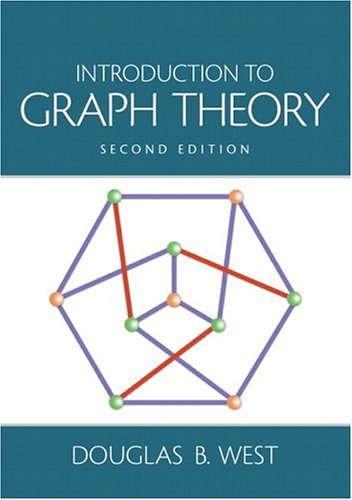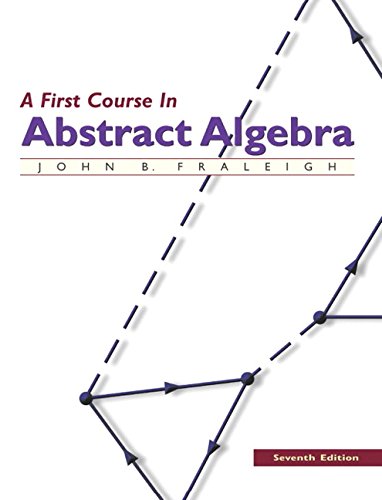(Part 2) Top products from r/mathematics
We found 22 product mentions on r/mathematics. We ranked the 91 resulting products by number of redditors who mentioned them. Here are the products ranked 21-40. You can also go back to the previous section.
21. Linear Analysis 2ed (Cambridge Mathematical Textbooks)
Sentiment score: 1
Number of reviews: 1
Used Book in Good Condition
 Show Reddit reviews
Show Reddit reviews22. Mathematical Methods for Physics and Engineering: A Comprehensive Guide
Sentiment score: 0
Number of reviews: 1
Cambridge University Press
 Show Reddit reviews
Show Reddit reviews23. How to Think Like a Mathematician: A Companion to Undergraduate Mathematics
Sentiment score: 1
Number of reviews: 1
Cambridge University Press
 Show Reddit reviews
Show Reddit reviews24. How to Study as a Mathematics Major
Sentiment score: 1
Number of reviews: 1
Oxford University Press
 Show Reddit reviews
Show Reddit reviews25. Real and Complex Analysis (Higher Mathematics Series)
Sentiment score: 1
Number of reviews: 1
McGraw-Hill Science Engineering Math
 Show Reddit reviews
Show Reddit reviews26. Essential Mathematics for Games and Interactive Applications: A Programmer's Guide, Second Edition
Sentiment score: 0
Number of reviews: 1
 Show Reddit reviews
Show Reddit reviews27. Introduction to Graph Theory (2nd Edition)
Sentiment score: 1
Number of reviews: 1
 Show Reddit reviews
Show Reddit reviews28. Cornerstones of Undecidability C (Prentice Hall International Series in Computer Science)
Sentiment score: 1
Number of reviews: 1
 Show Reddit reviews
Show Reddit reviews30. How to Solve It: A New Aspect of Mathematical Method (Penguin Science)
Sentiment score: 1
Number of reviews: 1
PENGUIN GROUP
 Show Reddit reviews
Show Reddit reviews31. Journey through Genius: The Great Theorems of Mathematics
Sentiment score: 1
Number of reviews: 1
 Show Reddit reviews
Show Reddit reviews32. An Introduction to the Theory of Numbers
Sentiment score: 1
Number of reviews: 1
Oxford University Press USA
 Show Reddit reviews
Show Reddit reviews33. Mathematical Methods in the Physical Sciences
Sentiment score: 0
Number of reviews: 1
 Show Reddit reviews
Show Reddit reviews34. A First Course in Abstract Algebra, 7th Edition
Sentiment score: 0
Number of reviews: 1
 Show Reddit reviews
Show Reddit reviews37. Critical Mass: How One Thing Leads to Another
Sentiment score: 1
Number of reviews: 1
 Show Reddit reviews
Show Reddit reviews





RPCV checking in. This is a good idea... you're going to have a lot of downtime and it's a great opportunity to read all the things you've wanted to but haven't yet found the time for. That could mean math, or languages, or just old novels.
When I was learning functional analysis, if found this book by Bollobas to be incredibly helpful. Of course, the only real analysis reference you need is Baby Rudin, but if you want to learn measure theory you may want his Real & Complex Analysis instead.
For texts on the other subjects, take a look at this list. You should be able to find anything you need there.
If you have any questions about Peace Corps, feel free to PM me. Good luck!
My pleasure :\^) It's hard to say what a local community college would have, since courses seem to vary a lot from school to school. The best thing you could find would probably be a class on something like "Set Theory" or "Mathematical Thinking" (those usually tend to touch on subjects like this without being pathologically rigorous), but a course in Discrete Math could do the trick, since you often talk about counting which leads naturally to countable vs uncountable sets. If you really want to learn the hardcore math, a course in Real Analysis is what you want. And if you don't know where to begin or are too busy, I can't recommend this book enough: http://www.amazon.com/Everything-More-Compact-History-Infinity/dp/0393339289. It's DFW so you know it's good ;)
I'm actually an undergrad studying Computer Science and Math but yes, I plan to end up a teacher after some other sort of career. Feel free to PM me if you have any more questions.
Honestly, two great books for you to use are:
It takes a 'cookbook' approach, that is, learning the techniques and application, of the most important/relevant engineering mathematics. So no deeper, pure mathematics, learning proofs approach.
Both are available for 'free' on the internet . . . at the libgen place and elsewhere ;)
I used them to refresh a lot of my mathematics for a graduate programme in finance.
Absolutely loved them!
Journey Through Genius: The Great Theorems of Mathematics by William Dunham. It's currently US$10.14 in paperback on Amazon.com. It includes plenty of interesting mathematics, as well biographical profiles of a number of mathematicians. It's also definitely suitable for someone your brother's age and with his current mathematical background.
I highly recommend Cornerstones of Decidability. It is presented in an accessible way but does not sacrifice rigour in the process. Rozenberg and Salomaa are not only very accomplished theoretical computer scientists, they are outstanding teachers as well.
I know of a few:
Critical Mass: How One Thing Leads to Another, by Philip Ball. This one is absolutely amazing. It covers how large group of small objects/individuals (each one only obeying simple rules based on what their neighbours are doing) can behave in large scale ways, eg landslides, traffic congestion, schooling fish, swarming birds, pedestrian flow. For me, it was eye opening because I had never realised that many of the random occurrences are actually still governed by some predictable rules.
Prime Obsession, by John Derbyshire. It is about a famous conjecture that has remain unresolved, and is surprisingly difficult to crack. This book covers some of the history, the fundamentals of the mathematical ideas, some anecdotal stories about some of the mathematicians who have worked on this problem. It is designed to be pretty accessible, so you do not need to be an expert in this area to be able to enjoy this book.
I love Russell's Principles of Mathematics for its exposition of the history of mathematical development, and found it really useful for putting some of the hairier concepts into context. Have you read it?
My go to book for anything graph theory related is the intro book by West.
Great book for undergrad / first year grad students. Goes into detail on numerous topics and if I can recall, you can find a bit of good application there. I know computer science replies on applications of graph theory quite a bit, so you may be able to delve further into that.
Polya's How to Solve it is a classic.
You might prefer Housten's How to Think Like a Mathematician which is much more modern.
I found that they both had useful insights, though there was a fair bit of information which I didn't find helpful.
There is a resource list on math stack for undergraduate and graduate level books inmathematics. There are similar pages like this but this has a few good ones.
​
Typical math undergrad curriculum goes: Calc 1-3, Diff eq, proofs, real analysis, linear algebra, abstract algebra, complex analysis and topology along with some electives.
i see high school students try to take on too much frequently. I'd look at real analysis andlinear algebra.
> I would like to be among the many mathematicians researching Riemann Hypothesis or Prime Number Theory
Get ahold of a copy of Hardy and Wright, https://www.amazon.com/Introduction-Theory-Numbers-G-Hardy/dp/0199219869, start reading, don't stop.
You're talking about Love and Math ( https://www.amazon.com/Love-Math-Heart-Hidden-Reality/dp/0465050743)
How to Study as a Mathematics Major by Lara Alcock
https://www.amazon.com/How-Study-as-Mathematics-Major/dp/0199661316/ref=nodl_
This book was given to me my senior year of high school and it secured me as a mathematics major. I think it gives an excellent introduction to university mathematics and advice on how to think when approaching problems. Really I think this is exactly what you’re looking for.
The Princeton companion to Math, vol 2 is Applied, are good references. Also books on math for physics: Mary Boas, Arfken/Weber, etc, there's a bunch
https://www.amazon.com/Mathematical-Methods-Physical-Sciences-Mary/dp/0471198269/
https://www.reddit.com/r/math/wiki/faq#wiki_what_are_some_good_books_on_topic_x.3F
http://www.goldbart.gatech.edu/PostScript/MS_PG_book/bookmaster.pdf
I've got a few recommendations:
A First Course in Abstract Algebra. The importance of this subject in mathematics cannot be overstated, even if it seems very counterintuitive. Most number theory problems are solved through advanced algebra. This book examines most aspects of groups, rings, and fields, and many major applications of them. Anyone can read the first chapter, but you're going to have a very bad time if you don't get each chapter DOWN before the next one. This subject matter took me two of the hardest classes ever to get through, so don't be discouraged.
Like I said elsewhere, Rudin's Principles of Mathematical Analysis. Starting from basic set theory, it provides a thorough construction of the concept of real numbers, followed by sequences, series, single-variable calculus, multi-variable calculus, touches on standard and partial differential eqs, and VERY basic functional analysis. Again, a short but extremely dense book, anyone can do it, but not easily. Don't take shortcuts, and it will massively expand your mathematical literacy.
Neither of these requires much set theory, but if you're having problems there is this book. It is what it looks like, but the first few chapters are logic so you can probably skip them. It's an easy read and it seems to me that set theory is very similar in operation to logic.
Game dev: https://www.amazon.com/dp/0123742978/
Economics: https://www.amazon.com/gp/product/0226278840/
Machine learning (not a book): http://machinelearningmastery.com/linear-algebra-machine-learning/
Signals/systems/controls: http://www.springer.com/us/book/9789400706019
Network analysis (wikibook): https://en.m.wikibooks.org/wiki/Linear_Algebra/Topic:_Analyzing_Networks
Try Mathematical Methods for Physics and Engineering: A Comprehensive Guide. There is also a neat student's solutions manual available. It has all of the material you will need, although problem difficulty is not really its strong point.